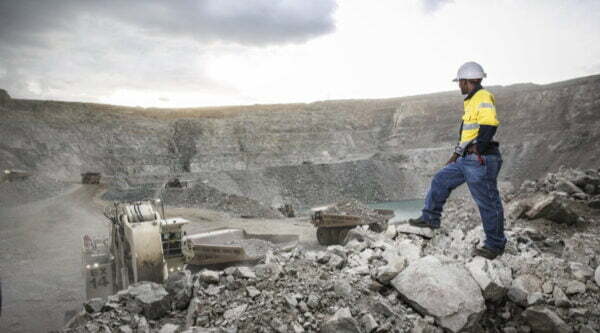Canada’s IAMGOLD (TSX: IMG) (NYSE: IAG) has delayed the sale process for its Sadiola gold mine in Mali, a joint venture with South Africa’s AngloGold Ashanti (JSE:ANG) (NYSE:AU), as the country is reeling from a coup, the second in less than 10 years.
The Toronto-based miner and its partner reached in December a $105 million deal to sell their 82% combined stake (41% each) in the gold project to Australia’s Allied Gold Corp.
The transaction was expected to close in April, but the coronavirus pandemic affected the timeline.
PRESIDENT IBRAHIM BOUBACAR KEITA RESIGNED ON TUESDAY AFTER SEVEN YEARS AS A HEAD OF STATE AND DISSOLVED PARLIAMENT HOURS AFTER SOLDIERS DETAINED HIM AT GUNPOINT AND SEIZED POWER
Mali President Ibrahim Boubacar Keita resigned on Tuesday after seven years as a head of state and dissolved parliament hours after soldiers detained him at gunpoint and seized power in a coup.
Tuesday’s events sparked international condemnation and are likely to further destabilize the West African nation, following months of anti-government mass protests and a rising insurgency from Islamist militants.
On Wednesday, Colonel Assimi Goita declared himself the leader of the military figures behind the coup — a group who identify themselves as the National Committee for the Salvation of People (CNSP).
Experts believe that miners operating in the country’s west and south are unlikely to face any significant threats to their assets. They will, however, have to deal with disruptions, including the imposition of a nightly curfew and the closure of all Malian borders, said Alexandre Raymakers, senior Africa analyst at risk analysis company Verisk Maplecroft.
Mining companies should also expect substantial administrative delays when dealing with authorities as government structures will be paralyzed by the ongoing political crisis, Raymakers noted.
Mines and petroleum minister Lelenta Hawa Baba Bah and her closest associates are unlikely to return to the ministry, however operators can expect some form of continuity as senior civil servants will remain in post, he said.
The analyst added that the Economic Community of West African States (ECOWAS) sanctions will involve the closure of land and air borders paralysing operators’ export routes and logistical lines.
“Considering the fragility of the Malian economy, we do not expect a new transitional government to drastically alter government policy towards the country’s mining sector,” Raymakers said. “Elites from all walks of the Malian political sphere welcome foreign investment in the mining sector as a crucial part of the economy.”
IAMGOLD’s founding asset
Sadiola, one of the three assets AngloGold Ashanti put on the chopping block this year and IAMGOLD’s founding asset, is also owned by the Mali’s government, which has an 18% interest.
“We note that the only outstanding matter is the signature of the prevailing government authorities,” IAMGOLD spokeswoman Indi Gopinathan told Reuters. She did not provide an estimate on closing.
The open-pit mine is near Mali’s border with Senegal, about 70 km south of the town of Kayes, and about 510 km northwest of the Mali capital of Bamako.
According to a recent pre-feasibility study, however, Sadiola could produce between 400,000 and 500,000 ounces of gold per year with the addition of the Sadiola Deep sulphide project_Mining.Com
.png)




